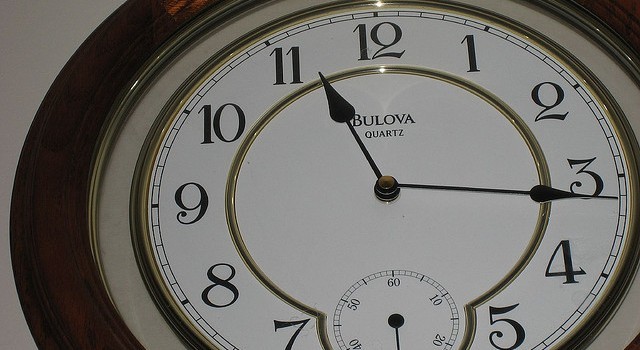Recently I read a study relating health and day light saving. First of what is day light saving is where the advancing of the clocks during the summer months by one hour so light extends into the evening hours. Now we would like to know why and how it relates to our health specially that it tackles on heart attacks, suicide, diabetes and other heart disease. Its mind bogling how it affects us when infact most or a lot of people are used to lack of sleep. Below lets see how and why to aswer are questions.
For Americans, it’s that time of the year again—time to move your clocks an hour ahead; losing a precious hour of sleep in the process. For many, the time change associated with daylight savings time (DST) also means spending several days or even weeks feeling generally off-kilter.
As reported by Prevent Disease:
“A study, published in 2007… combined surveys from 55,000 people in central Europe with data on 50 individuals' sleeping and wakefulness patterns for eight weeks around the shifts to and from daylight saving time.
As explained in the featured video, daylight saving time is intended to give you more access to daylight hours, thereby reducing energy costs and promoting healthy outdoor activities, and for nearly a century countries around the world have moved their clocks forwards in the spring and backward in the fall.
Daylight Savings Time Is Rough on Your Health
The research is quite clear on the health effects of this meddling with time. In short, it’s not good for you, and spikes in both heart attacks and suicide in the days following daylight savings attest to the stark reality of such findings.
The adverse health effects of losing an hour of sleep when the clocks move forward—and the ripple-effect it causes for days and weeks afterward—are significant, and really highlight the importance of sleep for mental and physical functioning.
According to the study’s author, Martin Young, Ph.D:
“Individuals who are sleep-deprived weigh more and are at an increased risk of developing diabetes or heart disease. Sleep deprivation also can alter other body processes, including inflammatory response, which can contribute to a heart attack.”
Productivity Goes Down and Accidents Go Up in Days Following DST Change
Studies also show DST causes the entire country to take an economic hit from lost productivity. When you consider that this happens once every year, the cumulative effect on productivity is likely to be very significant.
“The consequence of that is that the majority of the population has drastically decreased productivity, decreased quality of life, increasing susceptibility to illness, and is just plain tired,” Roenneberg has said.
Daylight Savings, Does It Really Save Energy?
The origin for daylight savings time was rooted in the idea that it could save valuable resources. Ben Franklin appears to have been the first person to suggest the concept, after awaking at 6am one morning in Paris, realizing that the sun was already up well before him.
Alas, times have changed. At best, DST may save you a handful of dollars on your electric bill each year. At worst, you end up paying a lot more. According to Michael Downing, a teacher at Tufts University and the author of Spring Forward: The Annual Madness of Daylight Saving Time:
“Daylight saving is… a boon to purveyors of barbecue grills, sports and recreation equipment, and the petroleum industry, as gasoline consumption increases every time we increase the length of the daylight saving period.”
Daylight Savings Might Be Jacking Up Your Energy Bill Each Year
According to the National Bureau of Standards, DST has virtually no effect on energy usage. A 2007 report by the California Energy Commission’s Demand Analysis Office also found that daylight saving time “had little or no effect on energy consumption in California.”
Following complaints from residents who struggled from being out of sync with businesses and friends in neighboring counties, the Indiana Legislature finally mandated daylight savings time be enacted state-wide. This presented economics researchers with an excellent opportunity to compare energy usage before and after adoption of DST, to see if and how much money was really being saved. As it turned out, the answer was none. In fact, DST cost Indiana residents millions of dollars in added energy costs each year! As reported by the Wall Street Journal:
“Using more than seven million monthly meter readings from Duke Energy Corp. covering nearly all the households in southern Indiana for three years, they were able to compare energy consumption before and after counties began observing daylight-saving time. Readings from counties that had already adopted daylight-saving time provided a control group that helped them to adjust for changes in weather from one year to the next.
So What Can You Do?
Let’s face it, as much as you and I may disagree with DST, there is little to no likelihood that our collective objections will do anything to stop it. So what can we do? My strategy, and the one that I strongly encourage you to adopt, is to seriously commit to getting the highest quality and longest sleep you can possibly get. For decades I prided myself on getting by on five hours of sleep or less. I gradually changed that to between six and seven hours, deluding myself into believing that because I was so healthy I could do it.
Sleeping Well Is Critical for Good Health
Sleep problems are epidemic in the US, both among kids and adults. A recent review of the research suggests most people, teens and older, need right around eight hours of sleep per night. Ideally, you should sleep enough hours that your energy is sustained throughout the day without artificial stimulation. Short-term sleep deprivation—such as what most experience when time “springs forward” is associated with:
- Memory and cognitive impairment
- Impaired performance and alertness
- Occupational injuries
- Automobile injuries
How to Protect Yourself During the ‘Spring-Forward’
But in addition to the strong recommendation of increasing your sleep to 8-9 hours on a consistent basis, there are some other things you can do to mitigate the effects of the time change—at least until the powers that be decide to get rid of it altogether. University of Alabama Associate Professor Martin Young suggests the following natural strategies to help your body resync after the time change:
- Wake up 30 minutes earlier on Saturday and Sunday, to minimize the impact of getting up earlier on Monday morning
- Go outside in the sunlight in the early morning
- Exercise in the mornings over the weekend, in accordance with your overall level of health and fitness
- Consider setting your clock ahead on Friday evening, allowing an extra day to adjust over the weekend
I generally agree with his suggestions, to which I would add the following:
- Be particularly mindful of using electronic devices in the days prior to the switch-over. Research on teens shows that using electronics for four hours during the day can increase your risk of needing more than an hour to fall asleep by nearly 50 percent. Using any device for more than two hours per day increases the likelihood of needing more than an hour to fall asleep by 20 percent. So, if you’ve ever considered “unplugging” for a day or two, the weekend of the DST switch-over is a perfect time to turn everything off, or cut down your use of electronics to a bare minimum so that you can optimize your sleep.
- Pay attention to your diet, making sure you are consuming plenty of fresh, whole foods, preferably organic, and minimal amounts of processed foods and fast foods; keep your sugar consumption very low, especially fructose. I invite you to review our total nutrition plan here.
- Practice good sleep hygiene, including sleeping in complete darkness, checking your bedroom for EMFs, and keeping your bedroom temperature no higher than 70 degrees; for a full report about how to maximize the quality of your sleep, refer to our previous article on sleep.
- Optimize your vitamin D levels.
- Manage your stress with whatever stress-busting techniques work for you.
- Consider supplementing with melatonin if you have trouble sleeping.
- If you have a fitness tracker that tracks sleep, start using it. If you don’t have one, you may want to consider getting one. During daylight savings time, making sure you’re getting enough sleep may be more important than ever.
Many fitness trackers can now track both daytime body movement and sleep, allowing you to get a better picture of how much sleep you’re actually getting. Newer devices, like Jawbone’s UP3 that should be released sometime this year, can even tell you which activities led to your best sleep and what factors resulted in poor sleep.
![]() Chronic sleep deprivation can increase the risk of high blood pressure, heart rate, blood clotting, and C-reactive protein which is an inflammatory marker that is associated with deadly heart attacks. Sleeping less than 6 hours per night can double your risk of angina, coronary artery disease, heart attack, and stroke.
Chronic sleep deprivation can increase the risk of high blood pressure, heart rate, blood clotting, and C-reactive protein which is an inflammatory marker that is associated with deadly heart attacks. Sleeping less than 6 hours per night can double your risk of angina, coronary artery disease, heart attack, and stroke.
Please Read this Article at Articles.Mercola.com
Photo Source: Dave Matos





Leave a Reply